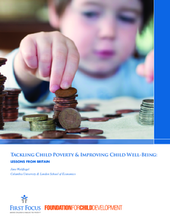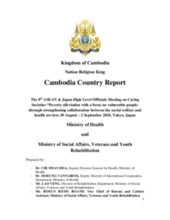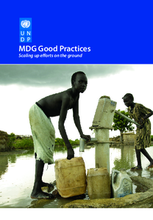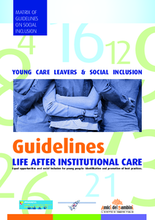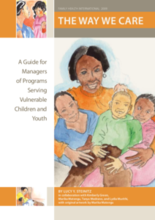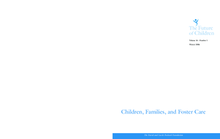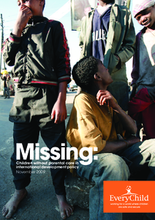Displaying 421 - 430 of 507
This paper, written for a US audience, describes recent efforts to reduce child poverty by a peer country, Britain. Drawing on research carried out over the past decade, this paper summarizes what we know about Britain’s war on poverty, their likely next steps, and implications and lessons for the US.
This report examines the impacts of HIV on the care choices of children, exploring how HIV affects whether or not children can remain within parental care, and on the alternative care options open to them.
This paper aims to show different organisations, institutions, governments and civil society the reality facing thousands of children in Latin America. This information can be used as a tool for debating and prioritising the issue as well as promoting constructing good practices and public policies that will improve the wellbeing and chances to develop of children without parental care and/or who are at risk of losing
This report from the Cambodian Ministry of Health and Ministry of Social Affairs, Veterans and Youth Rehabilitation outlines the efforts of the Cambodian government to address the needs of vulnerable people.
Good practices covered in this publication have sought to address specific constraints and challenges in achieving the Goals, in each country’s context, with specific examples related to care and protection for vulnerable children.
This paper is based on The Latin American Report: The situation of children in Latin America without parental care or at risk of losing it. Contexts, causes and responses, which was prepared using reports from 13 countries in the region. The paper gives an overview of the state of one of the most fundamental rights - the right to parental care, a keystone for the right to live in a family and a community.
In response to the increased social exclusion affecting youth leaving care, Amici de Bambini developed Matrix of Guidelines for Life after Institutional Care, which can be used to increase the likelihood of social inclusion for young people who have been released from the child protection system.
Manual aims to develop awareness, reinforce knowledge, and assist those designing, implementing, or managing programs for children and youth affected by poverty, HIV and AIDS, and other diseases.
Provides global estimates of the number of highly vulnerable children; a summary of United States Government (USG) assistance programs for highly vulnerable children; a summary of progress coordinating the response among USG agencies; key strategic issues and opportunities; priorities for 2009–2010 and beyond; and a summary of the results and achievements of USG assistance
Explores the negative impacts of loss of parental care on children. Advocates for reform for children based on assertion that failure to keep children in families, out of residential institutions and off the streets, will be another barrier to the achievement of the Millennium Development Goals

